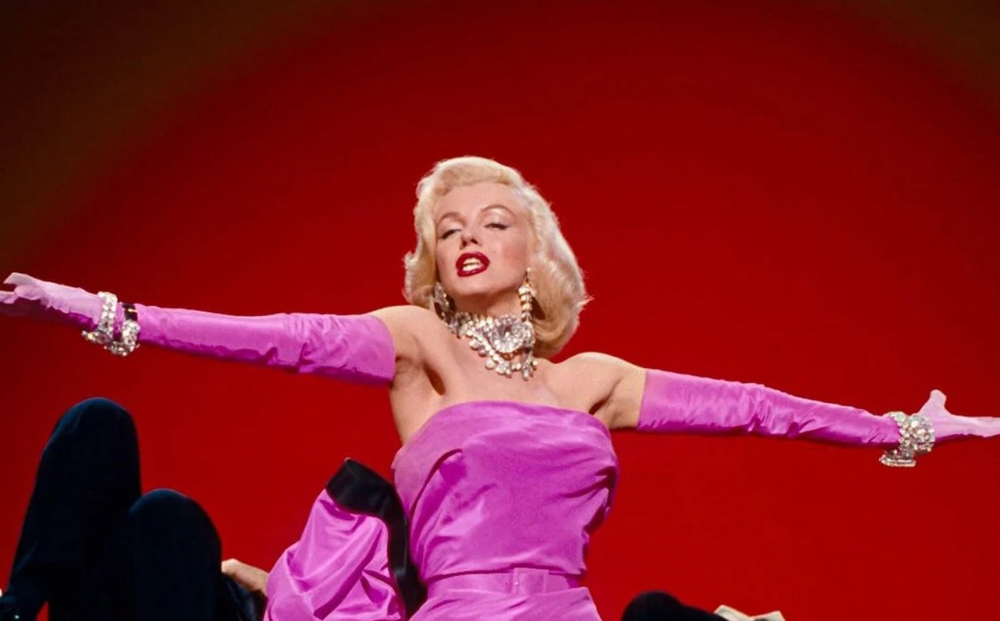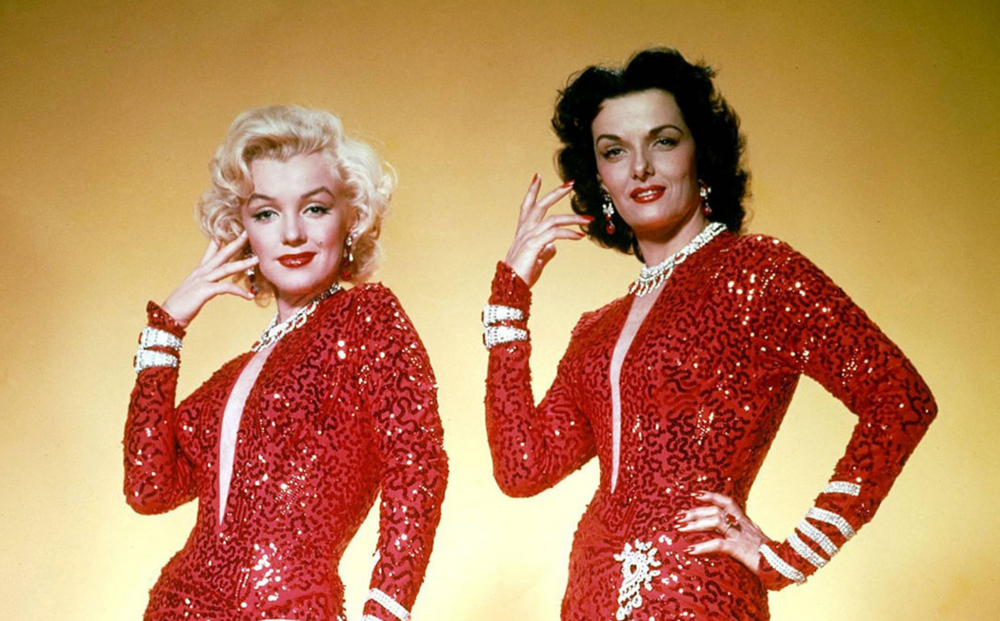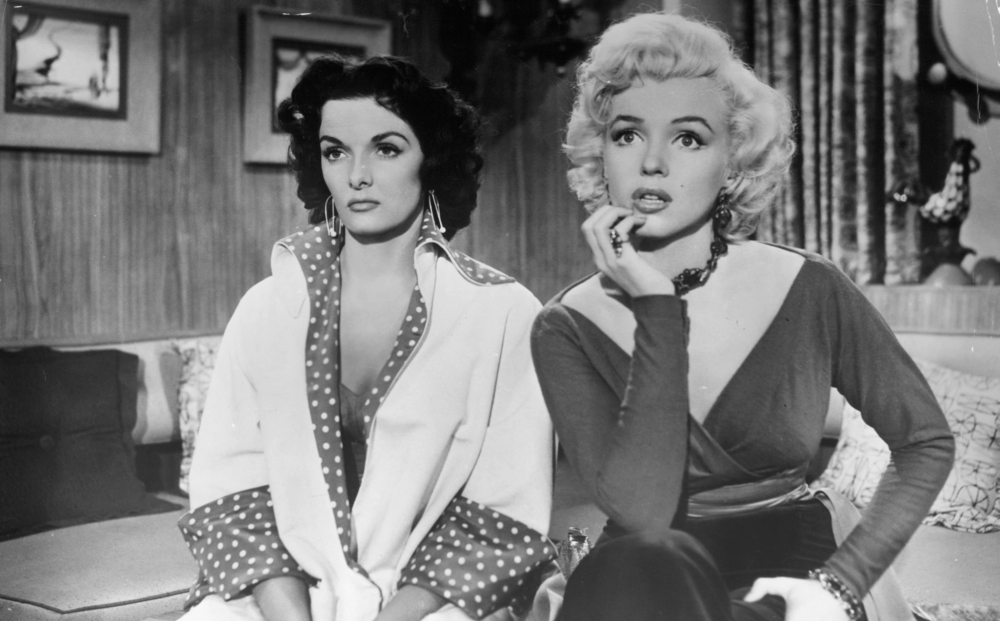GENTLEMEN PREFER BLONDES
U.S., 1953
Directed by Howard Hawks
Starring Marilyn Monroe, Jane Russell
Screenplay by Charles Lederer, based on the novel by Anita Loos
Approx. 91 min. DCP.
"Suppose the ship hits an iceberg and sinks. Which one of them do you save from drowning?" "Those girls couldn't drown." Marilyn Monroe's Lorelei Lee (iconic flapper of Anita Loos' original novel and countless incarnations) warbles "Diamonds Are a Girl's Best Friend" amid human chandeliers and candelabra, and clashing color scheme of cerise and scarlet ("We purposely made it as loud and bright as we could, and completely vulgar." – Hawks), while Jane Russell perplexedly queries "Ain't There Anyone Here for Love?" as indifferent muscle-bound bodybuilders work out. Yes, it's Gold Diggers of 1953, with 75-year-old Charles Coburn ("Work? This is work?" commented the actor) as the mining king in pursuit of Lorelei. Studio head Darryl Zanuck had to be persuaded to cast Monroe: even after a screen test of her performing "Diamonds" was deemed "too sexy," she still had to sing for him in his office to prove it was her voice (though the high notes were touched up by voice genius Marni Nixon). As legendarily difficult as ever with Hawks, she bonded with Russell, and only came late once for song and dance sessions with demanding choreographer Jack Cole, who ended up basically directing the musical numbers, 40% of the picture. "The opening shot — Russell and Monroe in sequins standing against a screaming red drape — is enough to knock you out at saur seat, and the audacity barely lets up from there." – Dave Kehr. "Never again in her career will Monroe look so sexually perfect, no never. Her physical coordination is never more vigorous and athletically quick; she dances with all the grace she is ever going to need, all the grace and all the pizzazz — she is a musical comedy star with panache! ... She must be the first embodiment of Camp, for GENTLEMEN PREFER BLONDES is a near perfect film in the way early Connery-James Bond films were perfect. The first film which enables us to speak of her as a great comedian." – Norman Mailer.
“Howard Hawks had to convince [20th Century Fox studio chief Darryl] Zanuck to cast Marilyn in the role of Lorelei Lee, a dumb-as-a-fox gold digger, assuring the mogul that he had been misusing her because comedy rather than drama was her forte. Hawks was wrong—she had already proven conclusively that she could handle dramatic parts—but her Lorelei Lee, a classic dizzy dame with a bubbly sexuality, set the template for the remainder of her career. Having found a formula for Monroe and adhering to the Hollywood conviction that versatility is an all but useless commodity in the creation and marketing of stars, Zanuck and company were determined to repeat it.” – Foster Hirsch
Reviews
“Call it inherent magnetism. Call it luxurious coquetry. Call it whatever you fancy. It's what makes this a—well, a buoyant show.”
– The New York Times
“The setup could as easily spark a film noir as a musical comedy; the flamboyant use of color, mainly fiery reds and sumptuous purples, masks the potential for blackmail and betrayal.”
– Richard Brody, The New Yorker
“As electrifying as the opening of any Hollywood movie that comes to mind, this jazzy materialization so catches us by surprise that we are scarcely aware of the scene's fleeting modulations as the dynamic duo makes it through a single chorus. The black curtain changes to a lurid blue, then a loud purple; and the complex flurry of gestures they make toward each other makes the spectator feel assaulted by them as a team as well as individually: a double threat.”
– Jonathan Rosenbaum, Sight and Sound
"Was there ever a movie in which Miss Marilyn Monroe looked more relaxed, or closer to having a good time?"
– David Thomson




